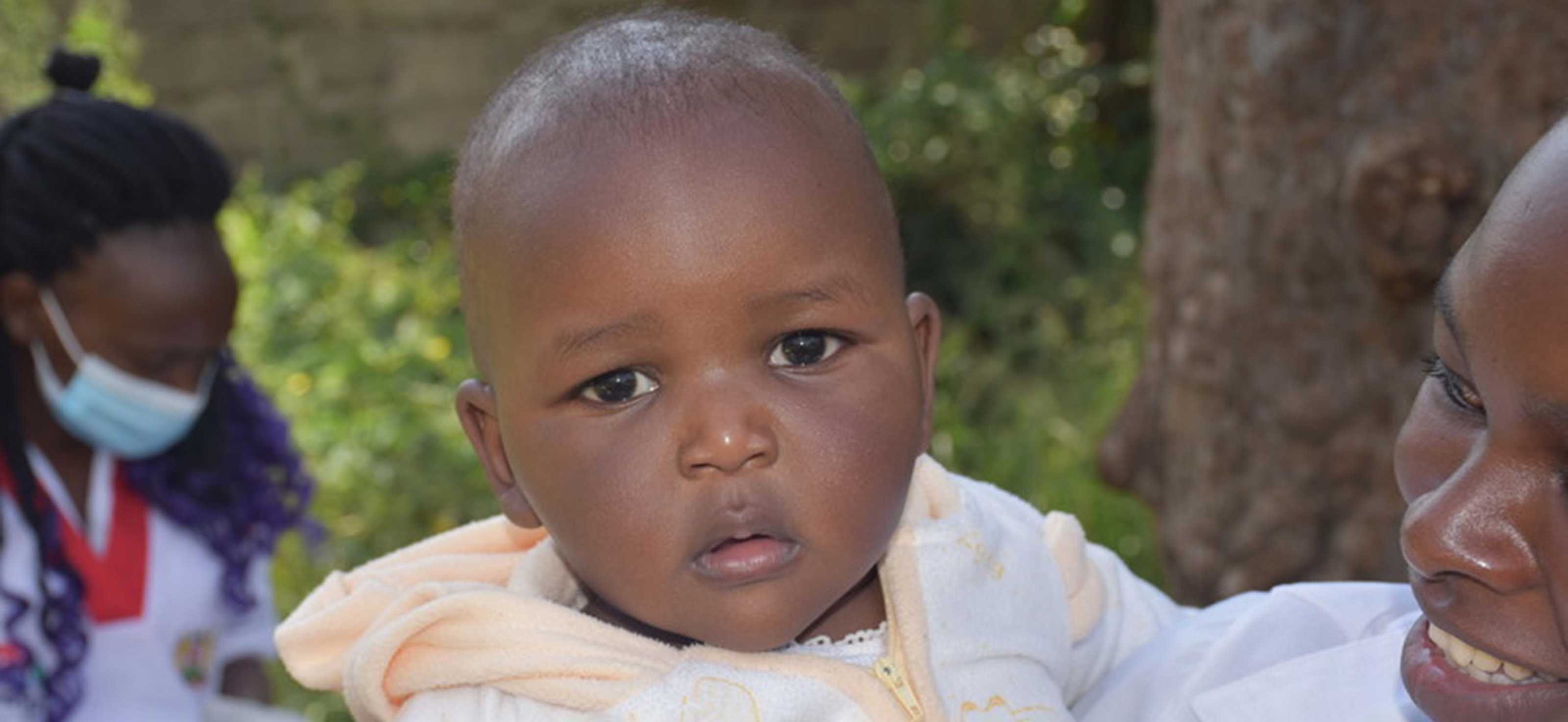Pelline Kemunto was overjoyed when she gave birth to a healthy baby boy. In the crowded slum where she lives in Nairobi, Kenya, pregnancy and childbirth don’t always have such happy endings.
But soon after she got the baby settled at home last spring, COVID-19 began sweeping across the world. Suddenly it was more than her newborn's cries keeping her awake at night — the fear and uncertainty about the pandemic were overwhelming.
Pelline found herself facing a difficult decision. A nurse told her that she needed to take her son for his checkup and a measles vaccination in order to keep him healthy … but Pelline was afraid of going to the health center and being exposed to COVID-19. How could she know which option was safer for her family?
Poverty leads to impossible choices
Pelline lives in one of the largest slums in the world. Even before the COVID-19 pandemic, far too many mothers and children got sick, died too soon or faced a lifetime of complications that easily could have been prevented — simply because they were poor and couldn't get the care they needed.
And, once the pandemic began, fewer and fewer of Pelline's neighbors have been willing to visit health centers for the essential care that could save their lives because they fear exposure to the coronavirus. That means fewer people are being tested and treated for HIV, in a city where infection rates are among the world’s highest. Fewer children — like Kemunto's son — are being screened for malnutrition or vaccinated against deadly childhood diseases. Fewer mothers are receiving prenatal care or delivering their babies in a safe environment.
For people who live in one of the world’s poorest communities, contracting COVID-19 is only the beginning of the risks they face during a pandemic. The crisis has only made them worse.
Outdoor clinics increase care and decrease the risks of COVID-19
To continue serving the needs of mothers and babies in Nairobi, local front-line health workers had to get creative. With support from Corus World Health donors, they began using outdoor spaces at local schools and churches to create open-air clinics to provide maternal and child health services for families in Nairobi's slums. This way, pregnant women, mothers and children do not have to interact with potentially sick patients at health centers where they would normally go for checkups, immunizations, nutrition counseling and other critical services.
So, instead of having these families visit the health center, health workers bring the health center to them.
"This," said one of our staff, "has made life bearable for the people we serve."
Health care for all takes creativity and flexibility
To keep patients, parents and health workers safe, these community-based clinics take precautions:
- Visitors are screened on entry and have their temperature taken
- All visitors must wear a mask and sanitize their hands before entry
- A disinfection team cleans and disinfects surfaces throughout the day
- Adequate waiting areas are established to ensure proper social distancing
- All staff have masks, a digital thermometer and hand sanitizer for protection and monitoring
Through this proactive, coordinated and adaptable approach, Corus World Health can continue to reach everyone, everywhere — even the most vulnerable families — with critical health services throughout the pandemic and beyond.

